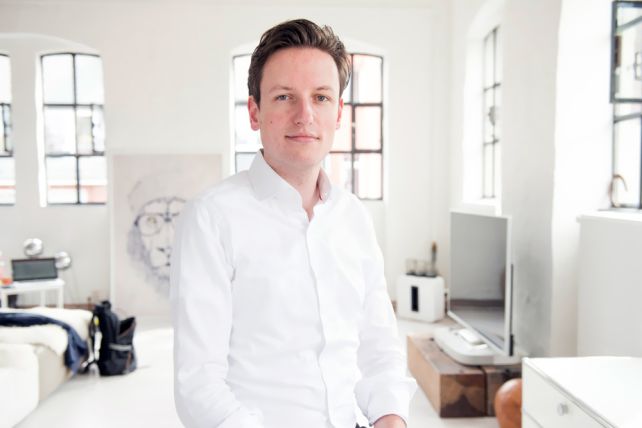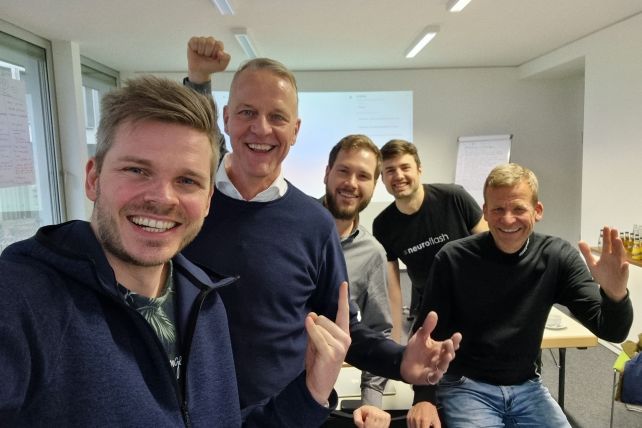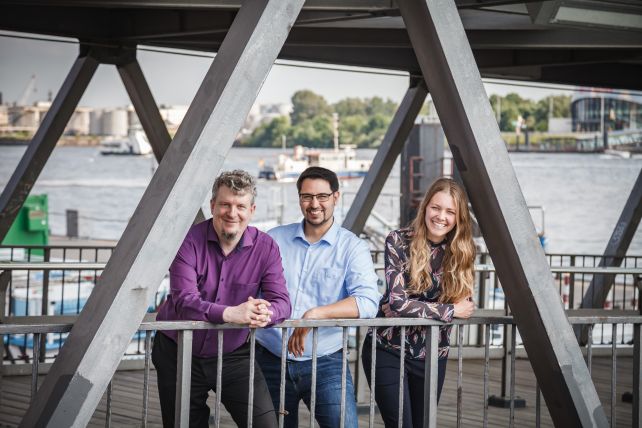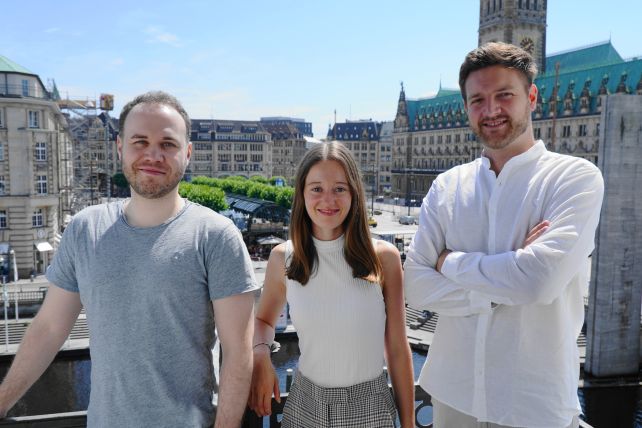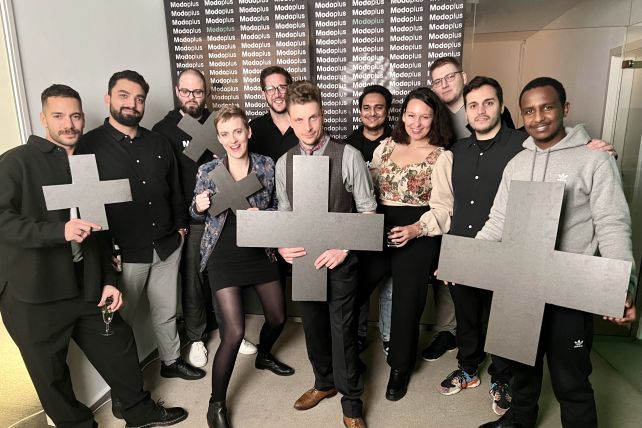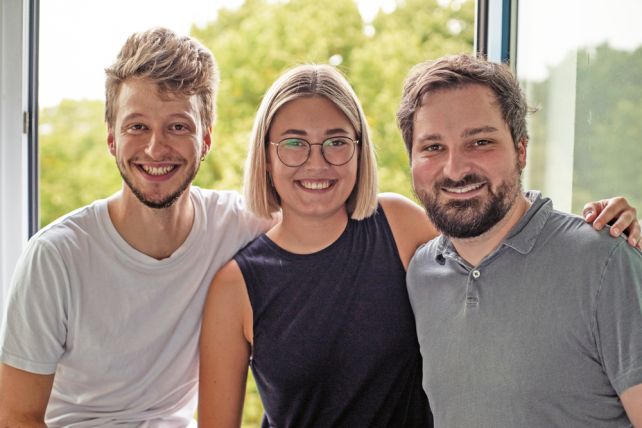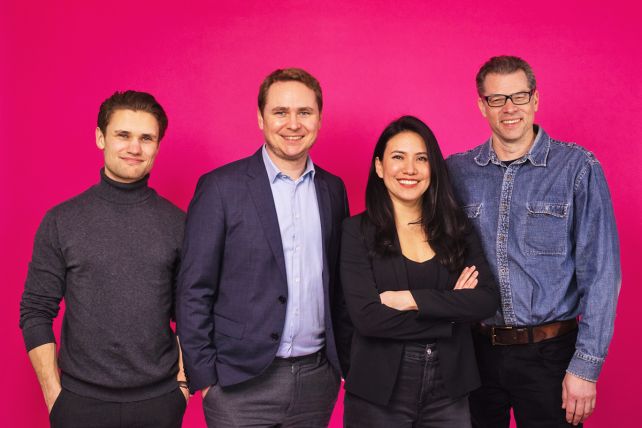Zive makes company knowledge accessible through AI
Jan Marius Marquardt is one of Hamburg's most successful startup entrepreneurs. At the age of 35, he can already look back on more than 20 years of experience. With his latest founding, Zive, he wants to use artificial intelligence to make a company's collective knowledge accessible to all of its employees. Just a few months after the startup was founded, it received almost 3 million euros in a financing round.

From Harry Potter to Haiilo
At the age of twelve, Jan Marius Marquardt was a big fan of both Harry Potter and computer games. As there was no game featuring the wizard student at the time, Jan taught himself programming and created one himself. Whilst still at school, he tried his hand as an e-commerce entrepreneur. After graduating from high school, he began studying business informatics, but dropped out as he realised that it wasn't getting him anywhere. Instead, he founded mindsmash together with Daniel Bush, initially as an agency to take jobs from clients such as Bertelsmann and Airbus. From the outset, however, the plan was to develop software for internal corporate communication.
This celebrated its premiere at CeBIT 2012 under the brand name COYO. This was to be the name of the startup for several years, which grew quickly and became profitable, meaning that no external financing was required for a long time. COYO was considered a prime example of bootstrapping, the successful development of a startup under its own steam. It was not until the end of 2020 that the American investor Marlin Equity Partners invested a double-digit million amount. COYO achieved a nine-figure valuation, expanded its international business through several acquisitions and renamed itself to Haiilo in 2022.

From GermanAI to Zive
In that year, Jan began to withdraw from the operational business, but he is still closely associated with Haiilo as Chairman of the Supervisory Board, among other things. What does a successful entrepreneur who has managed to exit do? Tackle the next project. The launch of ChatGPT in November 2022 served as a source of inspiration, as he recognised the enormous boost this would give to the general spread of artificial intelligence (AI) in almost all areas of life. So he wanted AI to play a key role in his next company and he founded GermanAI, which officially started work in July 2023. Piers Wermbter, a long-time companion from the COYO/Haiilo days, was on board as co-founder. Piers is an IT luminary, having completed his degree in computer science at the age of 19.
GermanAI combined several business models under one roof. The startup was a consultancy firm and offered online courses on AI. The most important area was venture building, the establishment of new AI companies. GermanAI wanted to build teams and develop ideas with expertise and financial support. However, Jan and Piers liked one of the ideas so much that they focussed entirely on it and put GermanAI on ice. Zive is the name of the new startup they founded in November 2023. The name is based on the English word ‘hive’ and alludes to the so-called swarm knowledge. The company name ‘Hive’ was already taken, so it became ‘Zive’.
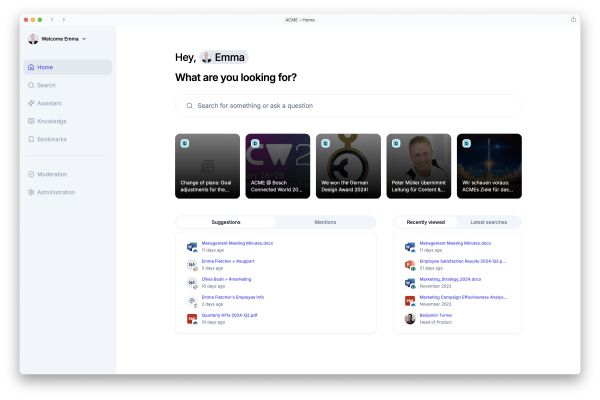
Zive brings order to information chaos
The concept of swarm knowledge or swarm intelligence assumes that many people know more than a few or even just a single person. The challenge now is to bundle and utilise this collective knowledge in a meaningful way. Zive pursues a similar approach. The premise here is that knowledge from various sources is available in companies but is hardly generally available and certainly not organised in a structured way. In a press release, Zive summarised the problem as follows:
80% of all company knowledge is unstructured and scattered all over the workplace – it’s chaos. Existing knowledge management tools rely on basic keyword search and the tedious manual curation of content scattered across a growing digital workplace. Today, desk workers use on average 11 different business apps daily, up from just 6 in 2019, and it’s estimated they lose 1.8 hours every day searching and gathering information. Previous attempts to throw large language models (LLMs) at the problem have shown dissatisfactory results and introduced safety and compliance issues.

A multitude of possible usages
Jan and Piers have repeatedly learnt how widespread this problem is and how great the demand for a solution is during their many discussions with large companies such as Deutsche Telekom and Coca-Cola. Previous solutions that do not use AI quickly reach their limits. A practical example: many companies have digital information available for the onboarding of new staff, which makes induction easier. This information needs to be updated regularly, but there is usually not the capacity to do so. With Zive, this is now done automatically and the knowledge provided to the new team member is always up to date.
This is just one of the many functions offered by Zive. The software makes it possible to search for information, turning it into a kind of ‘Google for companies’. It also helps to develop marketing strategies based on specific company and market data or to draft reports. The service is currently limited to the creation of texts, but the generation of graphics, images and videos will also be possible in the future. The internal information sources are analysed using over 20 evaluation factors. For data protection reasons, access to emails is not possible, but to tools such as Microsoft Teams or Slack is.
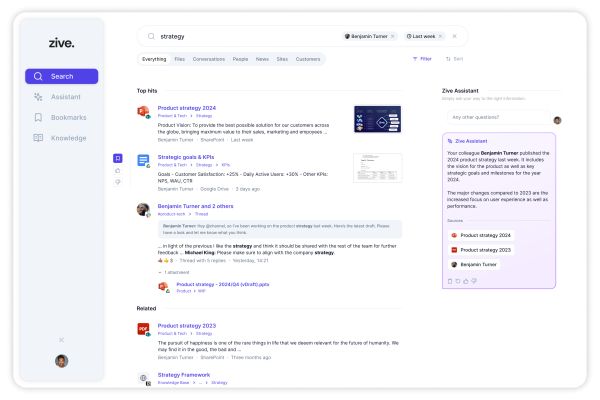
A financing round in the millions in record time
Zive was launched on the market in April 2024. Since then, the startup has acquired over 20 customers and has been able to increase its annual recurring revenue to over 100,000 euros within three months, and the trend is still rising. The plan is to triple revenue year on year. These figures and forecasts quickly made Zive attractive to investors. The pre-seed round was originally set at two million euros, but in the end it was 2.9 million. This puts the company's valuation at around 12 million euros. The money came from the early-stage investor Headline, which has its headquarters in San Francisco and its German branch in Berlin.
Zive owes its success to a team that consisted of just five people in the middle of the year and is set to grow to ten members by December. When recruiting, Jan attaches great importance to a high level of competence, ‘one superstar per expertise’ is how he describes his policy. Salaries are correspondingly high, up to 200,000 euros per year are possible. Even though the startup has a global focus and is orientating its growth targets towards American role models - at some point Zive should be as commonplace as Microsoft Office is today - its heart beats in Hamburg. Jan Marius Marquardt grew up here, has celebrated great successes and can identify well with the Hanseatic mentality:



